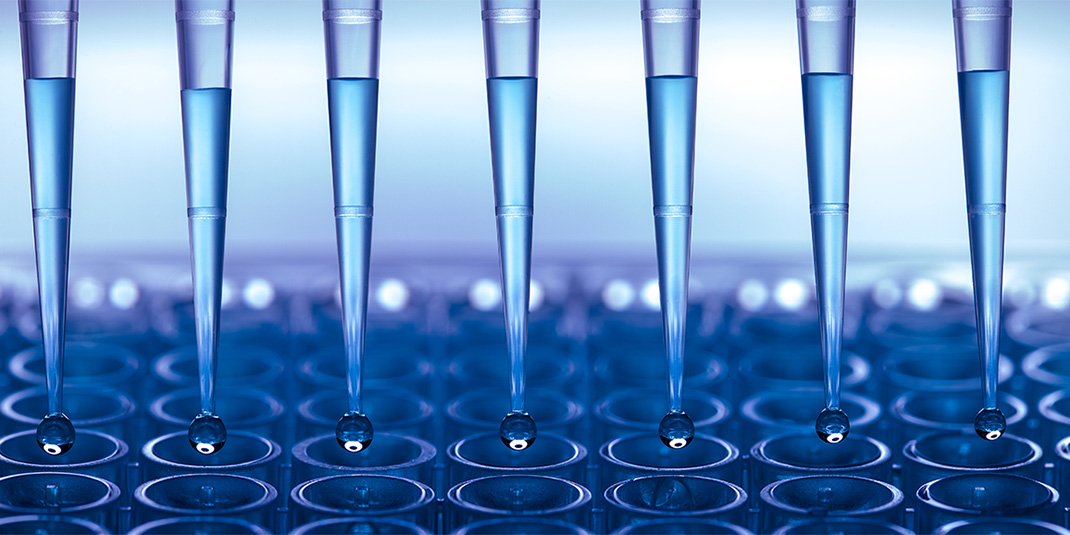How Safe are Your Samples? Part 1: Beware of Leachables and Extractables!

Researchers rarely consider that plastic consumables may pose a risk to their biosamples. However, leachables and extractables from plastics can harm the integrity of stored biomaterial and affect biological assays that evaluate the quality of biosamples. How can this be prevented?
Life science laboratories worldwide use disposable plasticware in many shapes and forms. Plastic pipet tips, reaction tubes or storage vessels frequently come into prolonged contact with important biomaterial. Often, this plasticware is assured to be sterile, free of pyrogens and devoid of enzymatic activity. Consequently, the majority of scientists does not contemplate the possible perils inherent in these consumables for their samples. This can be a costly mistake. Bioactive leachables and extractables from those plastic components can pose serious risks to the biomaterial stored in or exposed to them.
But what exactly are leachables and extractables? Leachables are chemical compounds from plasticware that directly seep into the sample under normal or prolonged storage conditions. Extractables, on the other hand, are chemical components that can be extricated from the plasticware using polar or non-polar solvents, or under extreme heat conditions.
How do these compounds get into the plasticware? Plastic laboratory consumables are polymers that are formed from petrochemical monomers. Residual monomers after the manufacturing process may leach from the plastic into biosamples that are in direct contact with it1. Furthermore, various additives are usually included during the production process of the plasticware, to increase performance or yield of the product, and these compounds are also potent leachables or extractables2. Consequently, such leachables and extractables are not rare: a recent study identified at least 16 trace elements (including calcium, zinc and bromine) and 18 organic compounds (such as palmitic and stearic acid) as extractables from polyvinyl chloride material3.
Importantly, some of these compounds have alarming bioactivities. Some can bind to human receptor proteins, while others may inhibit the activity of crucial enzymes. As an example, dodecanol and oleamide, both leachables found in common plastic reaction tubes, inhibit human monoamine oxidase B, an enzyme with important functions in neurotransmitter deamination4,5. Oleamide also binds to the human GABAA receptor, potentially interfering with its function. Recently, leachables from plastic storage vessels were found to inhibit the human tyrosine kinase Abl16. Other leachables, such as dihydroxyethyl-methyldodecylammonium, are biocidal in nature4. Obviously, all this is bad news for storage of valuable cell suspensions or other biosamples in plastic vessels.
So what can one do? Luckily, not all plasticware is created equal, and several companies have begun to implement extensive testing regimens to evaluate their consumables. How? Click here to see what the industry is doing now to combat the problem of leachables and extractables in laboratory plasticware!
Learn More - Download Our Whitepaper
References
1. Krishnan, A.V., Stathis, P., Permuth, S.F., Tokes, L., and Feldman, D. 1993. Bisphenol-A: an estrogenic substance is released from polycarbonate flasks during autoclaving. Endocrinology, 132(6): 2279–2286. doi:10.1210/en.132.6.2279. https://www.ncbi.nlm.nih.gov/pubmed/8504731
2. Olivieri A, Degenhardt OS, McDonald GR, Narang D, Paulsen IM, Kozuska JL, Holt A. On the disruption of biochemical and biological assays by chemicals leaching from disposable laboratory plasticware. Can J Physiol Pharmacol. 2012. 90(6):697-703. doi: 10.1139/y2012-049. https://www.ncbi.nlm.nih.gov/pubmed/22509735
3. Jenke D, Castner J, Egert T, et al. Extractables Characterization for Five Materials of Construction Representative of Packaging Systems Used for Parenteral and Ophthalmic Drug Products. PDA J Pharm Sci Technol. 2013. 67(5):448-511. doi: 10.5731/pdajpst.2013.00933. https://www.ncbi.nlm.nih.gov/pubmed/24084660
4. McDonald GR, Hudson AL, Dunn SM, et al. Bioactive contaminants leach from disposable laboratory plasticware. Science. 2008. 322(5903):917. doi: 10.1126/science.1162395. https://www.ncbi.nlm.nih.gov/pubmed/18988846
5. Stewart J, Drexler DM, Leet JE, McNaney CA, Herbst JJ. Labware additives identified to be selective monoamine oxidase-B inhibitors. J Biomol Screen. 2014;19(10):1409-14. doi: 10.1177/1087057114551523. http://journals.sagepub.com/doi/10.1177/1087057114551523
6. Chen H, Blanchaert B, Shinde AB, et al. Abl1 inhibitory contaminants leach from plastic tubes. J Enzyme Inhib Med Chem. 2016; 31(2):340-3. doi: 10.3109/14756366.2015.1022171. https://www.ncbi.nlm.nih.gov/pubmed/25798691